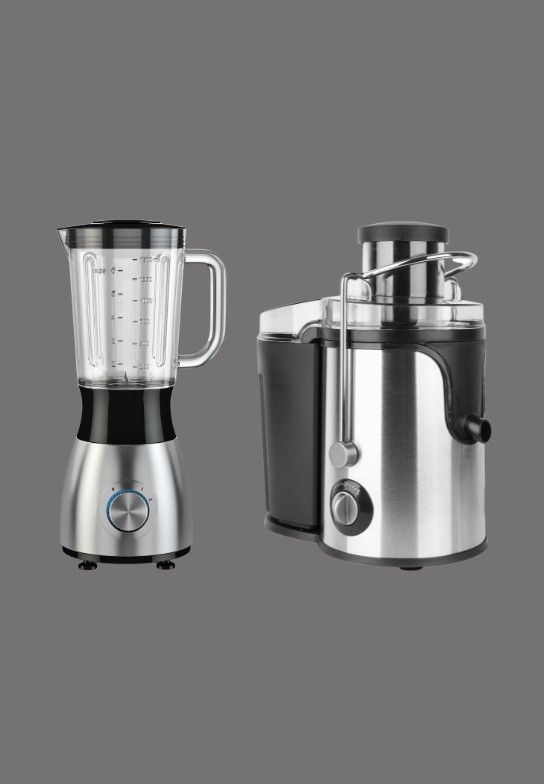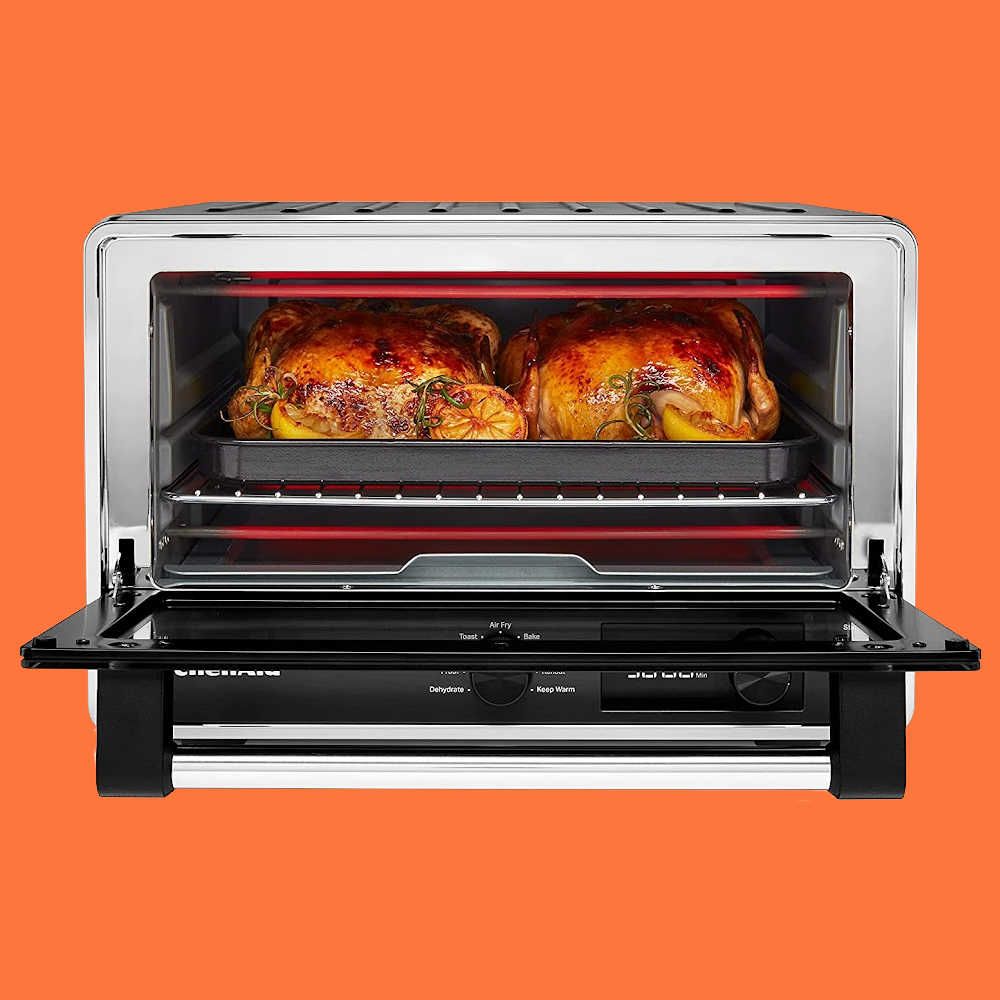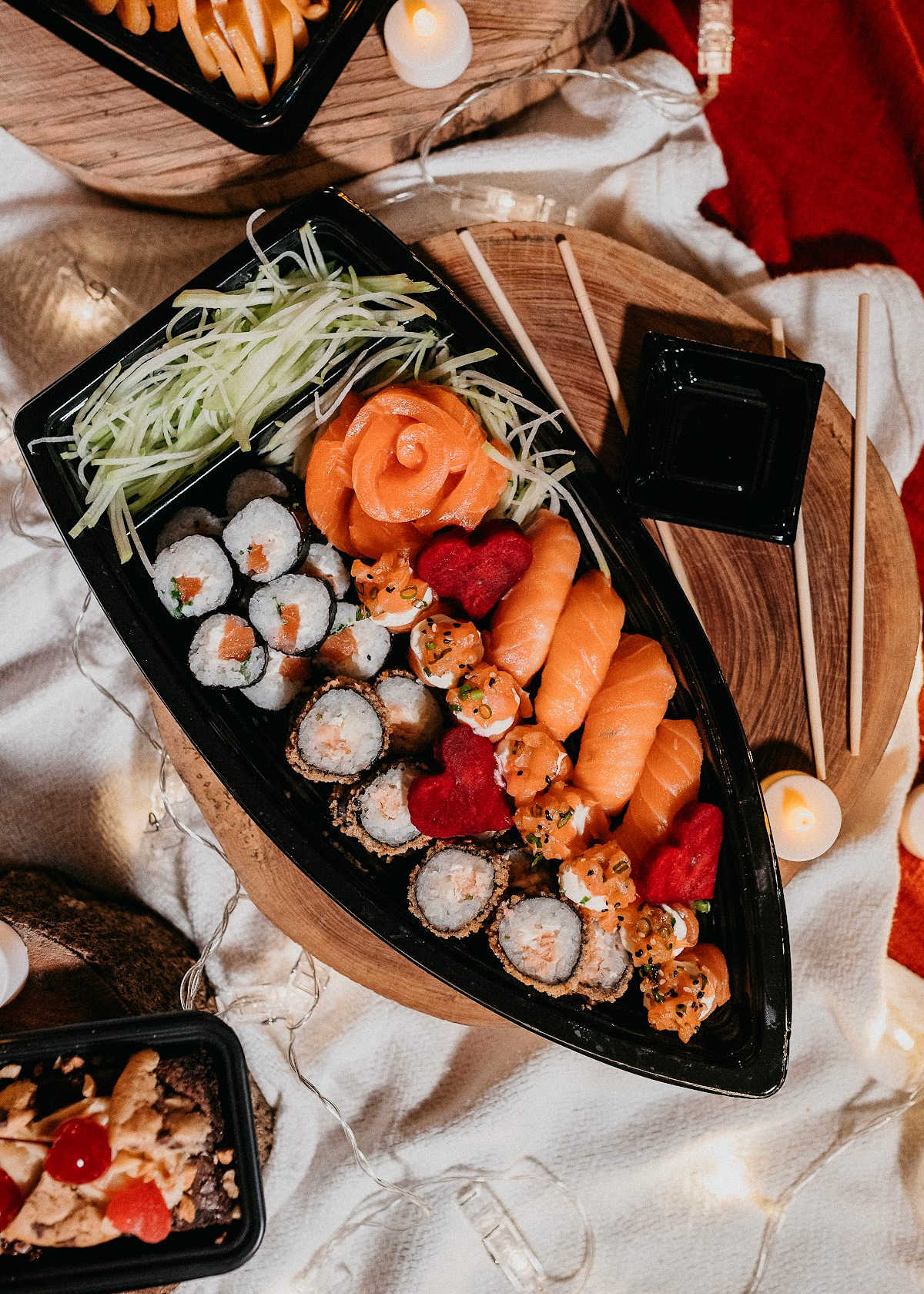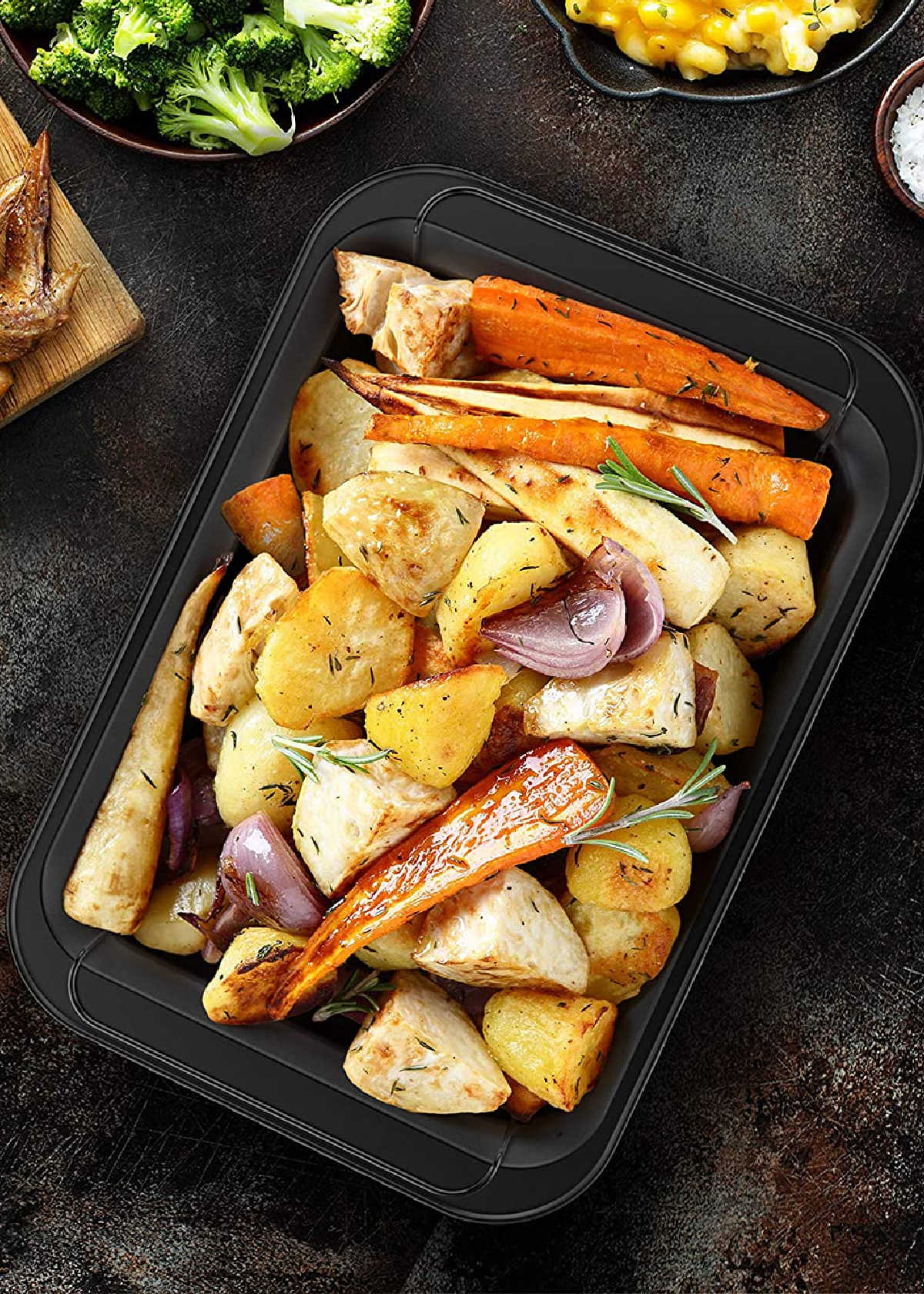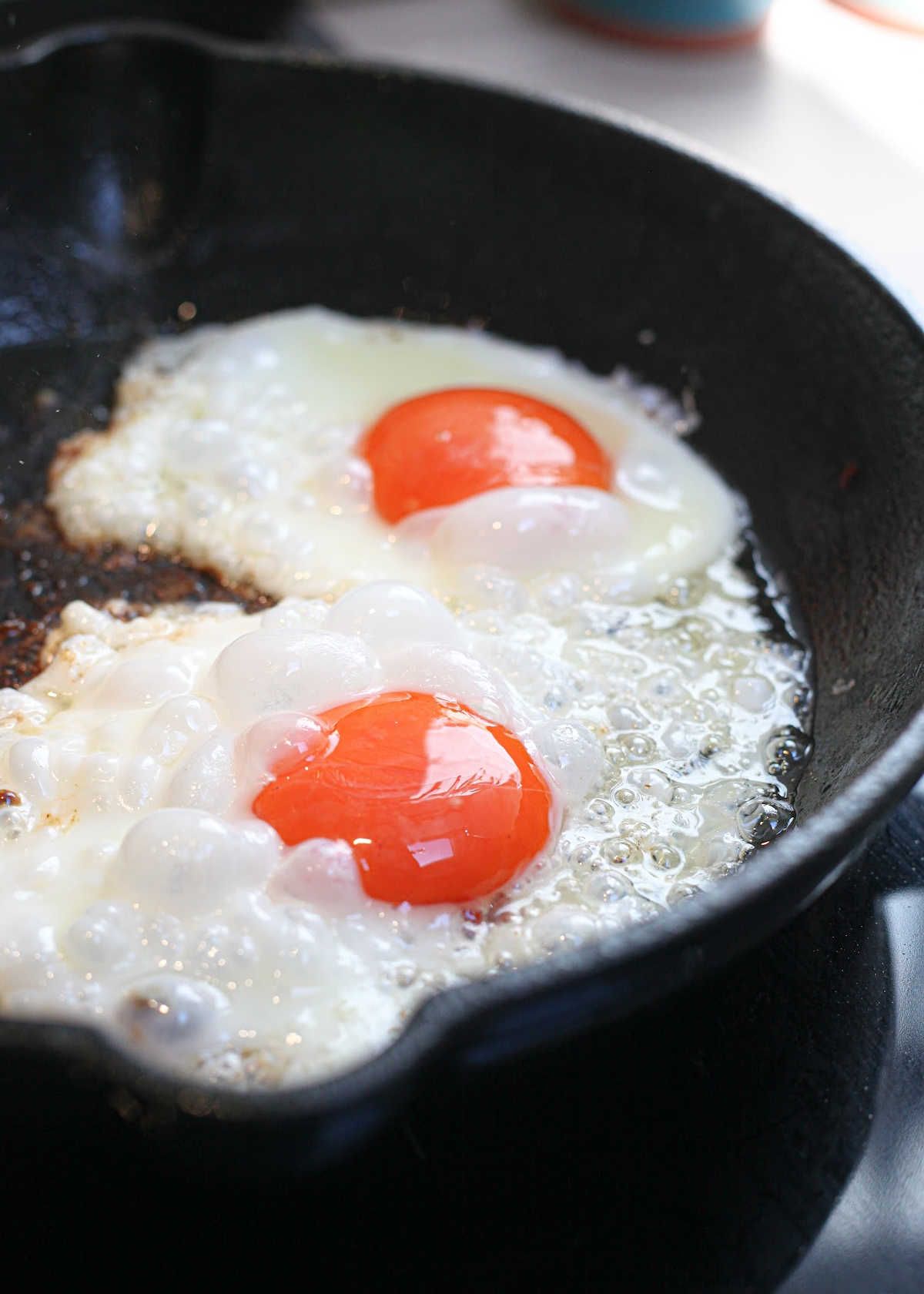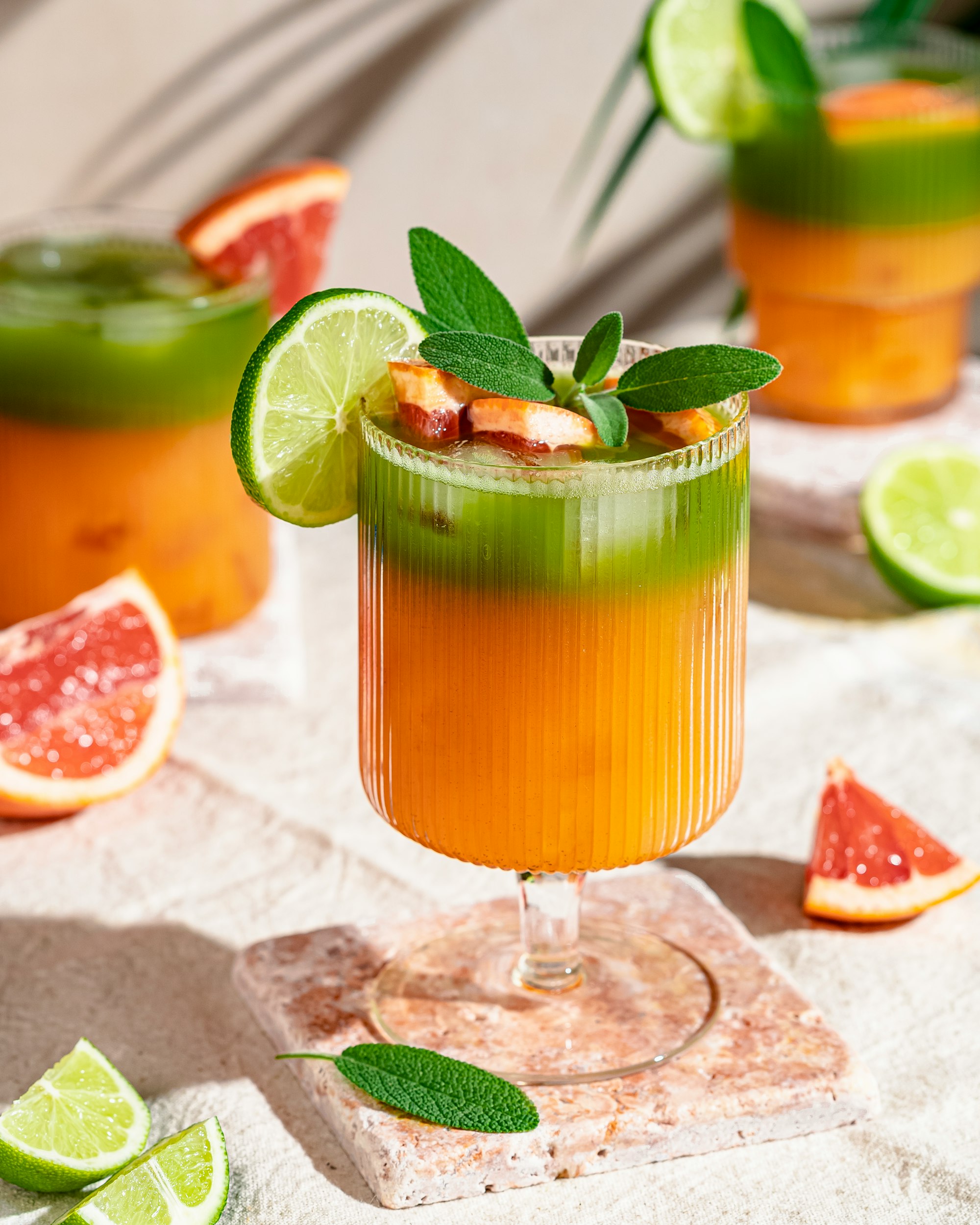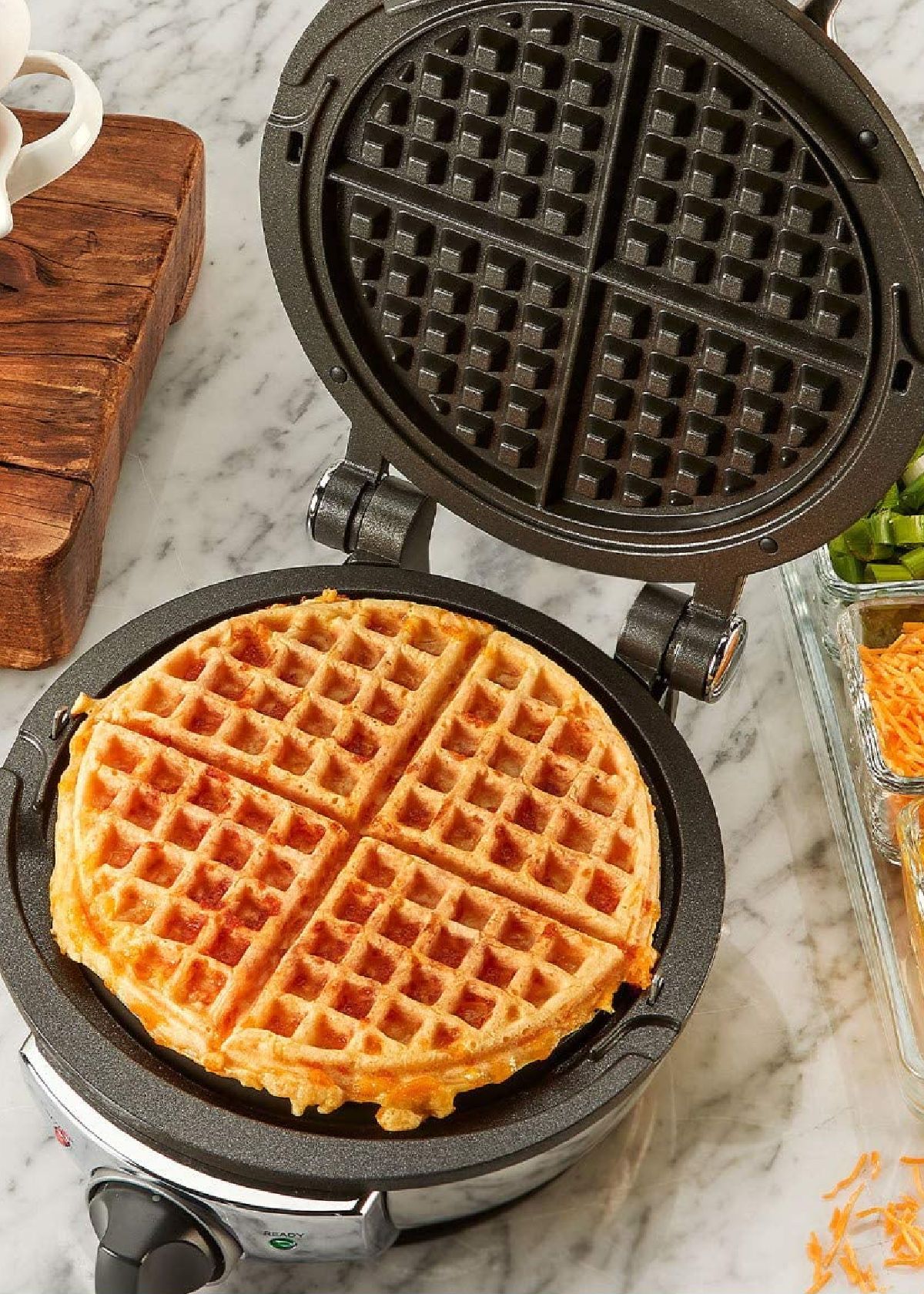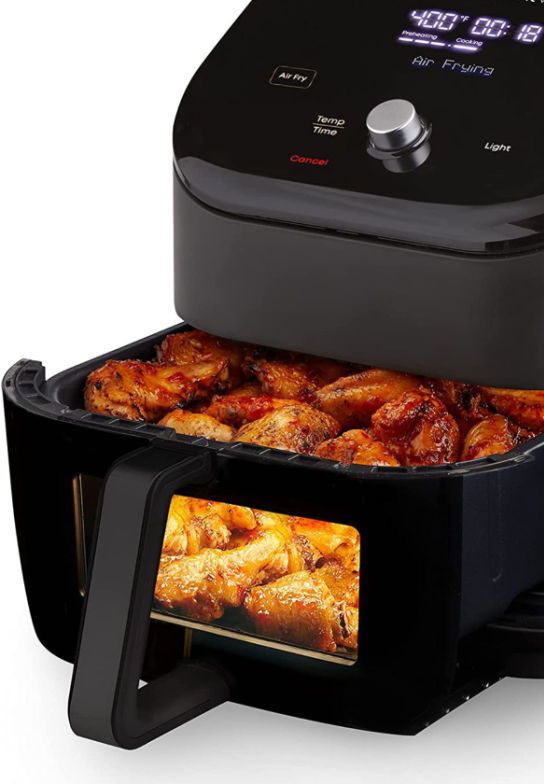Content Summary
Blenders and juicers are the two popular appliances that people use to make juices, smoothies, and shakes. But the tool you use to make your drinks can greatly affect the outcome.
This article intends to not only answer this question but also provide an in-depth guide to both appliances to help you choose which one is best suited for your needs. Check further!


Blender And Juicer
Blender vs Juicer
1. Blender
Blenders can be used for everything from crushing ice, blending fruits, pureeing vegetables, and chopping nuts to grinding coffee beans.
- It is a versatile machine that can be used for various things such as making smoothies, soups, sauces, and dressings.
- Two types: countertop blenders (1-2L) and handheld immersion blenders (0.5-1L). Both blenders are food processors.
- One of the setbacks that come with using a blender is that you need to add some liquid to create a smooth puree. Otherwise, it is not possible to blend the ingredients into a smooth consistency.
- Blenders produce some foam. This is fine for a smoothie, but if you're making fruit juice, you want your juice to be "flat". A juicer does just that.
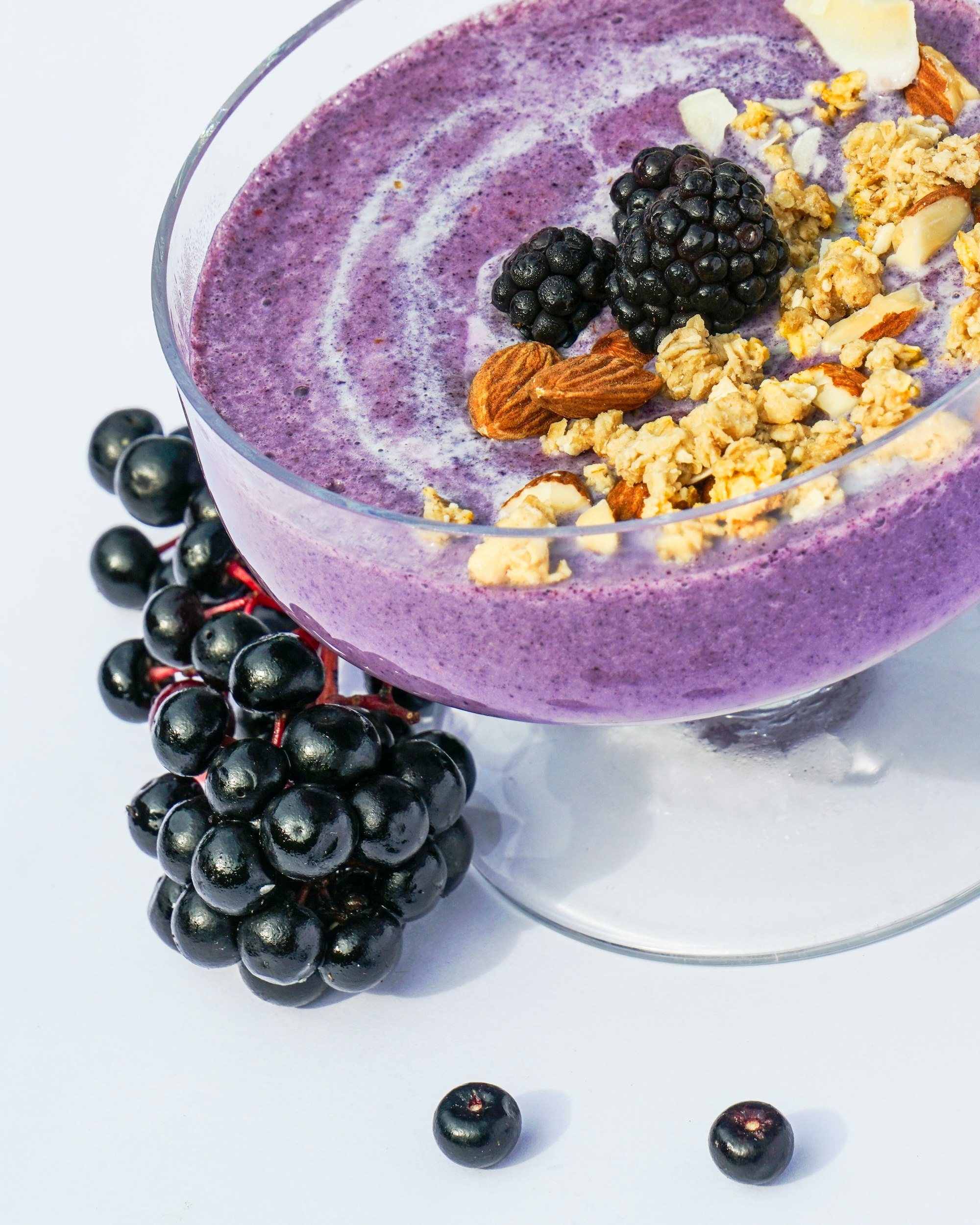




Using A Blender To Make Smoothies
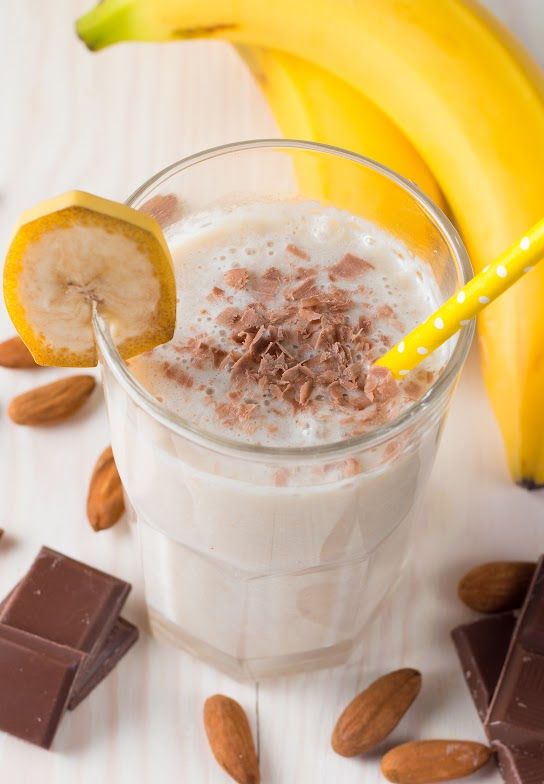
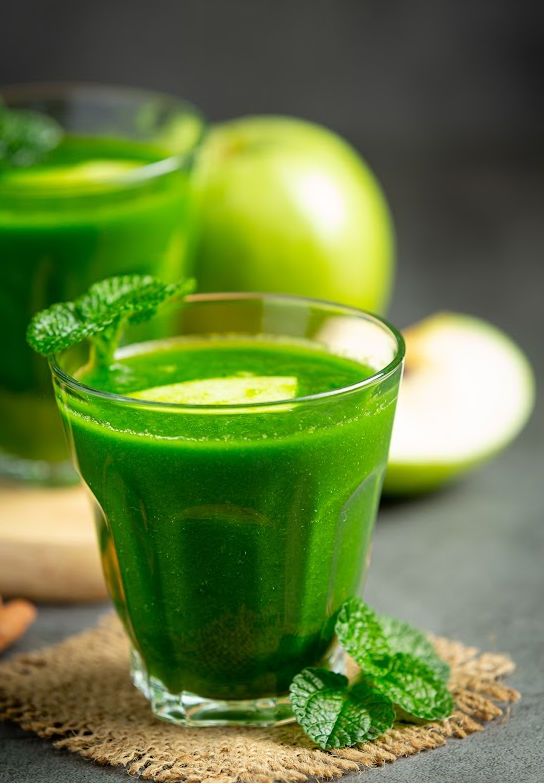
2. Juicer
Juicers, on the other hand, are machines that extract juice from fruits and vegetables, giving you a smoother liquid consistency.
- Juicers are often used to make fresh and healthy juice and are an excellent way to get your daily dose of vitamins and minerals.
- There are several types: fast or centrifugal juicers, cold press juicers, slow or masticating juicers, and hand crank juicers.
- Juicers can also extract more juice from a piece of fruit than a blender, which means you end up with more juice overall.
- However, juicers are not as versatile as blenders. You can only use them for juicing, meaning they aren't useful for making smoothies, soups, or dressings.
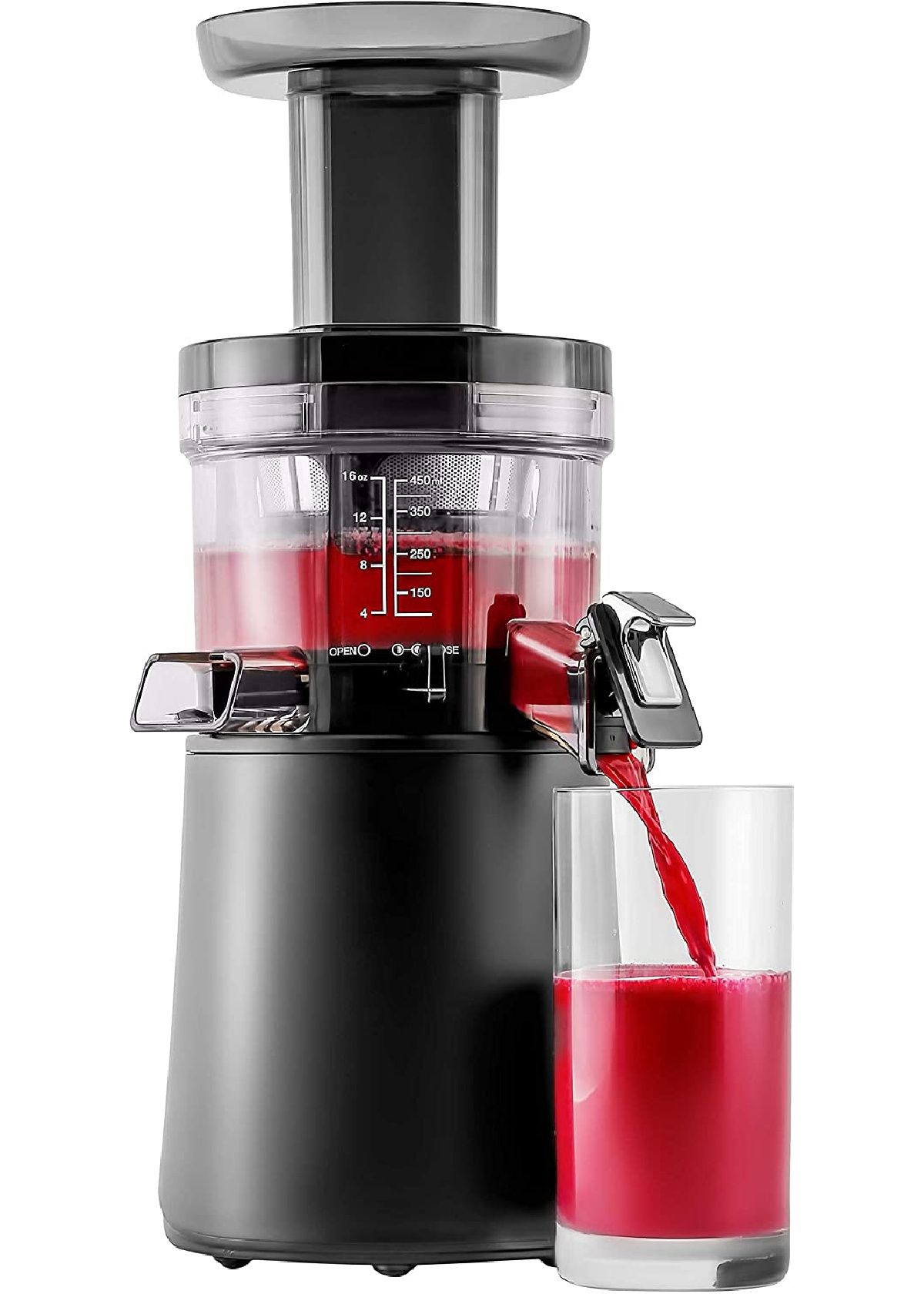




Using A Cold-pressed Juicer To Make Juices
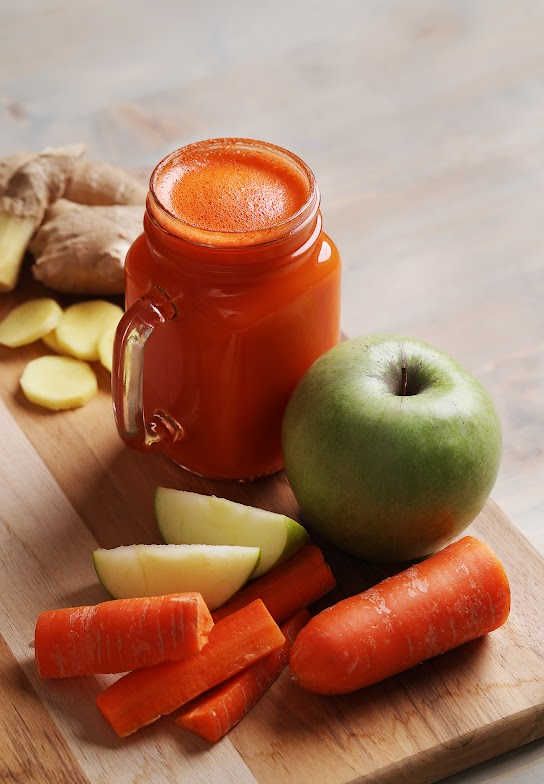
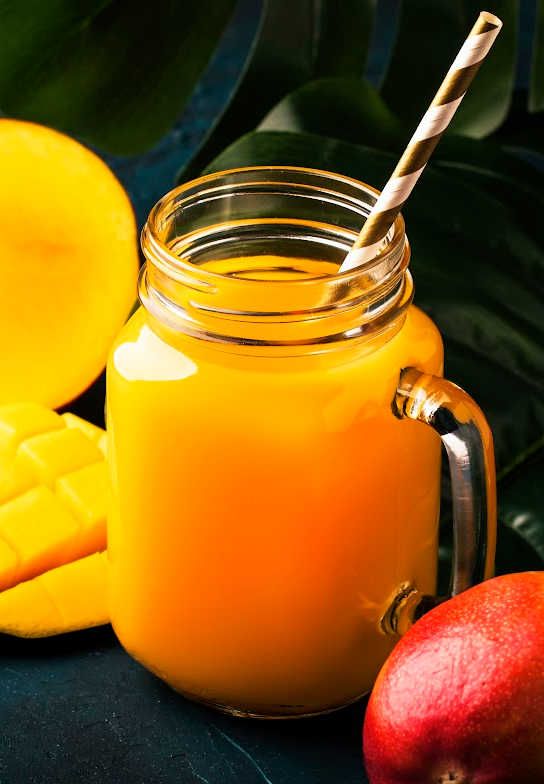
Blender: Pros & Cons
Pros:
- Versatile: Blenders are suitable for a variety of food preparation, not just drinks. You can blend almost anything into a smooth puree such as soups or even nut butter, and most blenders can crush ice.
- Easy to clean: Blenders have a removable blade unit that makes them easy to clean.
- Easy to use: Blenders are relatively easy to use and require minimal effort.
- Retain more fibers: Blenders retain the pulp for the full nutritional value from the fibers as they break down by crushing, rather than extracting. Blenders produce less food waste as a result.
- Less expensive: Blenders are often less expensive than juicers, immersion (or: stick) blenders in particular.
Cons:
- Liquids must be added: Blenders require some liquid to be added for the ingredients to blend properly.
- Foam in fruit juice: Blenders can produce additional foam in fruit juice, making it less desirable to some.
- Noisy: Blenders can be quite noisy when in use.
- Less extract: Blenders may not extract as much juice as juicers. Blenders can produce thicker drinks (milkshakes, smoothies) which for some can be more difficult to swallow.



Using A Blender To Make Smoothies
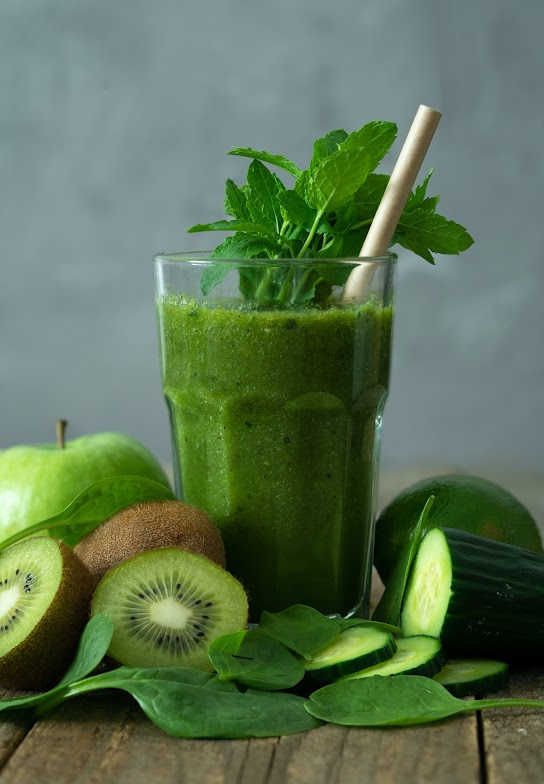
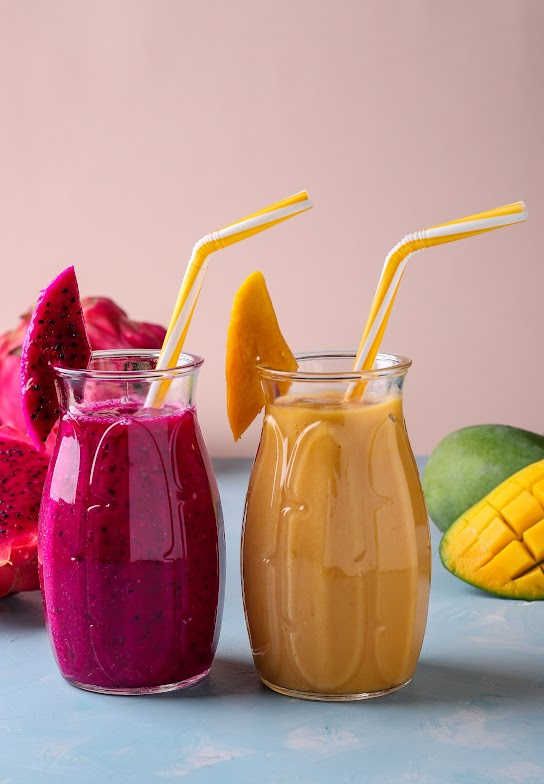
Juicer: Pros & Cons
Pros:
- More extract: Can extract more juice from fruits and vegetables as they extract liquid from fruits and (some) vegetables while leaving the pulp behind.
- Smoother juice consistency: They produce a smooth juice, making for easier digestion for some, since the human body doesn't have to work to break down the fibers.
- High amount of nutrients: Juicers have a specific function and produce nutrient-dense juice from fruits and vegetables. Perfect for anyone who wants a daily dose of fresh vitamins and minerals.
Cons:
- Less versatile: Juicers are primarily designed to juice fruits and some vegetables, limiting their use.
- More complicated: The process of separating pulp can be messy and time-consuming.
- More effort to clean: Juicers can take more time to clean than blenders because of all the small parts.
- More expensive: Juicers are more expensive than blenders.




Using A Cold-pressed Juicer To Make Juices
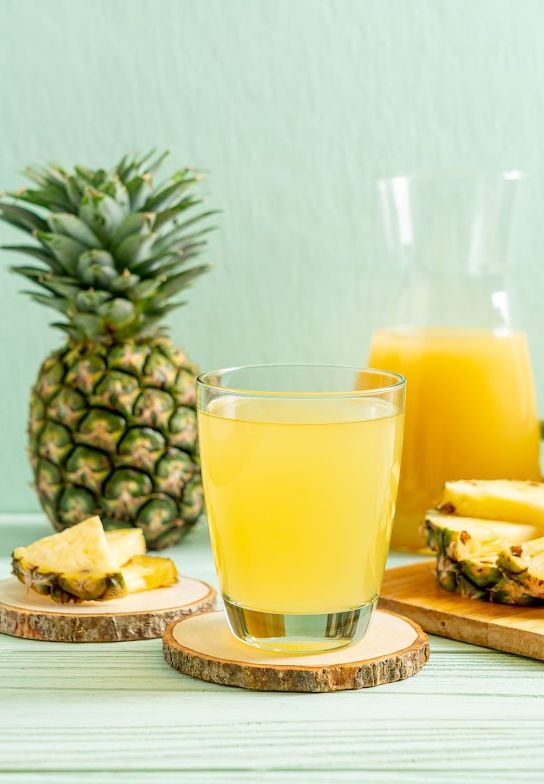
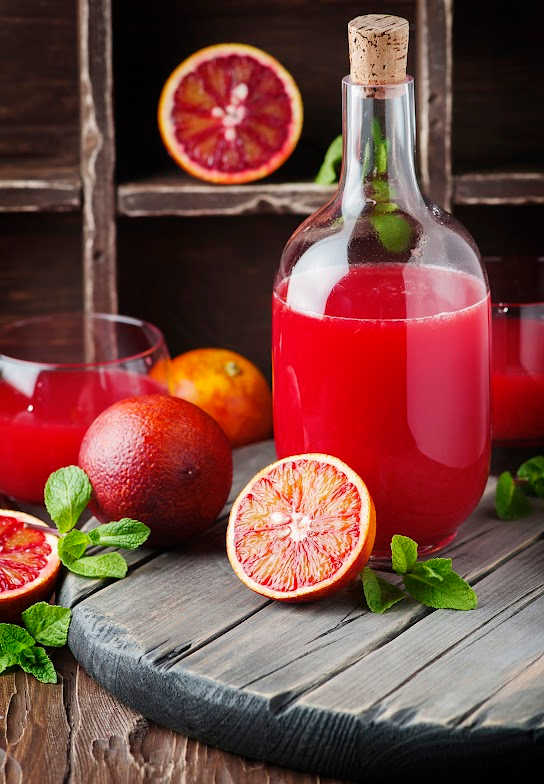
Blenders And Juicers FAQs
Here are some common questions you may have about blenders and juicers:
Why is juicing healthier than blending?
Juicing is considered to have more health benefits than blending because it separates the juice from the pulp, leaving you with a liquid that is easier for the body to digest. Juicing also retains more nutrients, vitamins, and minerals that are beneficial for your health.
Blending produces blended smoothies that include pulp and fibrous material, which can be difficult for the body to break down and digest. Blending also requires that you add some liquids such as water or juice, which dilutes the nutrient content.
Is cold-pressed juice better than smoothies?
Cold-pressed juice is considered to be healthier than smoothies because it helps retain more of the nutrients and antioxidants in fruits. Cold-pressed juice also has a longer shelf life than smoothies.
However, cold-pressed juicers can be expensive, and using them requires more effort than blending smoothies.
Smoothies are still a healthy option, as long as you use fresh and organic ingredients, and don't add sugar.
Is blending or juicing better for weight loss?
Blending or juicing can both help with weight loss. Juicing helps to reduce calories since juicers separate the fibers when extracting the juice.
- Several kinds of fruit also help to detoxify the body, and given the fact that juice contains 0% fat, these two factors help promote weight loss.
- Blending your fruits and vegetables into a smoothie can help to keep you full and satisfied for longer.
- However, as long as you use low-calorie ingredients and don't add any sugary liquids, blending fresh fruit can still be a good option for weight loss.
Is it better to blend or juice carrots?
Both will provide you with beneficial nutrients and vitamins. It depends on your preference.
- If you're looking for a smooth and creamy texture, then blending carrots is the way to go.
- If you're looking for a more concentrated, liquid form of carrots, then juicing them is the best option.
- If you are looking to get the most out of your carrots, then cold-pressed juice is the way to go as it retains the most nutrients and antioxidants.
Is celery better juiced or blended?
Celery is better juiced than blended as it helps to retain more of the nutrients and antioxidants present in celery. Juicing also separates the pulp, making it easier for your body to digest. Blending celery can make the drink thicker and more difficult to swallow.
Do you lose nutrients when juicing?
Some nutrients can be lost when juicing. However, the same is true for blending. The main difference is that with juicing, you are separating the pulp, leaving behind some of the fiber and nutrients. With blending, all of the ingredients are mixed, so some of the nutrients can be lost due to oxidation.
How much noise does a blender or juicer make?
Blenders are usually louder than juicers when in use. But juicers can be quite noisy as well, depending on the type and power of the model. Also, blending takes a few minutes, while juicing may take much longer, especially when using a slow juicer.
Which is better for making smoothies, a blender or a juicer?
For smoothie-making, a blender is the best option as it can mix all the ingredients into a smooth texture. Juicers process fruits by extracting juice, so they're not suitable for making smoothies.
Which is better for making juice, a blender or a juicer?
Juicers are better at extracting smooth juice from fruits and vegetables, but blenders can make juices that still retain the fibers for more nutritional value.
Can I use my juicer as a blender?
You cannot use a juicer as a blender. A juicer is designed to extract juice from fruits and vegetables while leaving the pulp behind. On the other hand, a blender is designed to blend ingredients into a smooth puree, which includes the pulp.
Can I use my hand blender as a juicer?
Many immersion blenders feature a small container (0,5L) for making a dressing, baby food, or a smoothie. However, as they cannot separate the juice from the pulp, they are unfit to be used as a juicer.
Juicer vs Blender | Which is healthier and right for me? | Simple Green Smoothies
Blender or Juicer: Final Verdict
Both blenders and juicers have their unique benefits and drawbacks. Choose one that suits your specific needs and preferences based on whether you want a smooth drink without pulp or prefer a drink with more fiber.
Juicers extract the liquid from fruits and vegetables while leaving the pulp behind, while blenders, at very high speeds, liquefy everything.
If you're looking for versatility and the ability to make multiple things such as frozen drinks, dressings, or soup, then a blender is the better option for you.
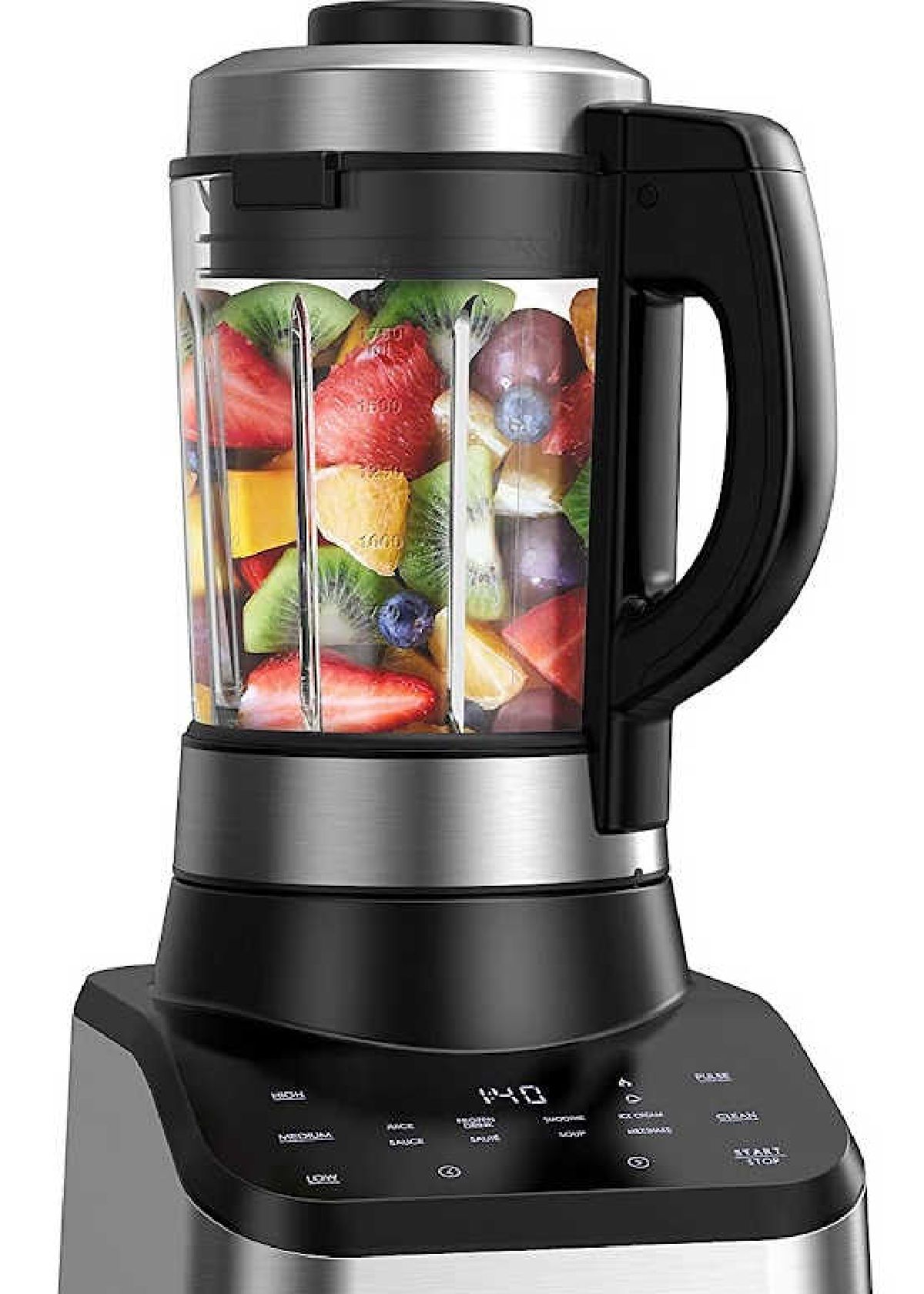
If you're looking for the perfect way to get your dose of fresh and healthy juice, then a juicer will do the job perfectly. If you want it iced, just add ice cubes.

Hope the information in this guide can help you make an informed decision based on what you're looking for. Be sure to choose a high-quality appliance that suits your needs and budget.
Happy juicing!
Catchy Finds



